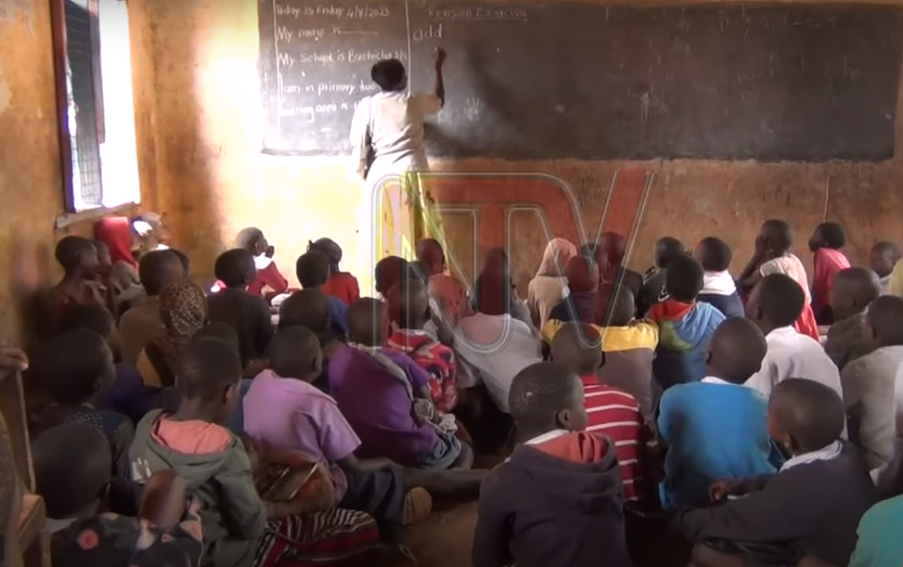All public schools to have a nursery - government

Dr Tony Lusambu, the assistant commissioner primary, says continued reports showing majority of Primary Three pupils failing to grasp literacy and numeracy skills is forcing the ministry’s technical team to propose to government that every primary school starts a nursery section
What you need to know:
Results indicate that pupils who go through nursery perform better at primary level.
Kampala- The Ministry of Education has proposed that all public primary schools have a nursery section to improve numeracy and literacy skills in primary-going children.
Assistant commissioner primary, Dr Tony Lusambu, said in an interview that continued reports showing majority of Primary Three pupils failing to grasp literacy and numeracy skills is forcing the ministry’s technical team to propose to government that every primary school have a nursery section attached to it.
Findings from government’s National Assessment of Progress in Education (NAPE 2012) report showed that Primary Six pupils from 68 per cent of the districts surveyed did not know enough numeracy for their level.
Literacy skills in English language were worse, as the report records 75 per cent of the districts failing to acquire the required proficiency rate of 50 per cent at the same level.
Another survey by Uwezo, Annual Learning Assessment Report 2010, showed that 98 per cent of Primary Three pupils sampled could not read a Primary Two level text. Such findings are some of the reasons the ministry wants public schools to have nursery sections.
“We have proposed to government that every primary school gets a nursery. I know it will take some time. We might phase it and we are likely to start with remote areas. We have already drawn the plan and are waiting for funds,” Dr Lusambu said.
“Results indicate that pupils who go through nursery perform better at primary than those who go straight to primary. Government loses a lot of resources if children don’t go through the system as planned. The government is already paying for them under Universal Primary Education programme. It shouldn’t be a problem to streamline it.”
But this development will require that the government constructs at least two classrooms more at every primary school in order to accommodate a nursery section.
Government will also have to put two nursery school teachers on payroll. This will mean getting more resources to recruit teachers, construct classrooms and buy furniture.
For now, the Teacher Instructor Education and Training department (TIET) says there is no tutor or pre-primary teacher on payroll.
However, the department is also working to streamline pre-primary teaching.
Ms Elizabeth Kasirye, an official at TIET, explained that early childhood development teacher training has been largely supported by the private sector.
A total of 103 institutions, affiliated to universities and tertiary institutions accredited by National Council for Higher Education - majority of which are religious-based - have so far been approved to train nursery school teachers.
“Early childhood development (ECD) training is done by private sector. The government has not yet taken over although we have designed a curricular and have started licensing teachers and institutions,” Ms Kasirye said in an interview.
“We don’t know how many nursery school teachers the country has. No ECD tutor or teacher is on government payroll. We see a lot of exams and hard work above the developmental levels and needs of children below six years, being given to these children because of unprofessionalism, unqualified and possibly under trained care givers,” he added.
She explained that a child should be taught how to read by stimulating their language inborn abilities before the age of five.
Numeracy and literacy
Numeracy is the ability to understand and work with numbers, while literacy is the ability to read and write.
The first couple of years of childhood are considered to be a vital part of life for the development of numeracy and literacy.
Basic numeracy skills consist of comprehending fundamental mathematics like addition, subtraction, multiplication, and division.
For example, if one can understand simple mathematical equations such as, 2 + 2 = 4, then one would be considered possessing at least basic numeric knowledge. Children under the age of 5 have the best opportunity to absorb basic numeracy skills.




